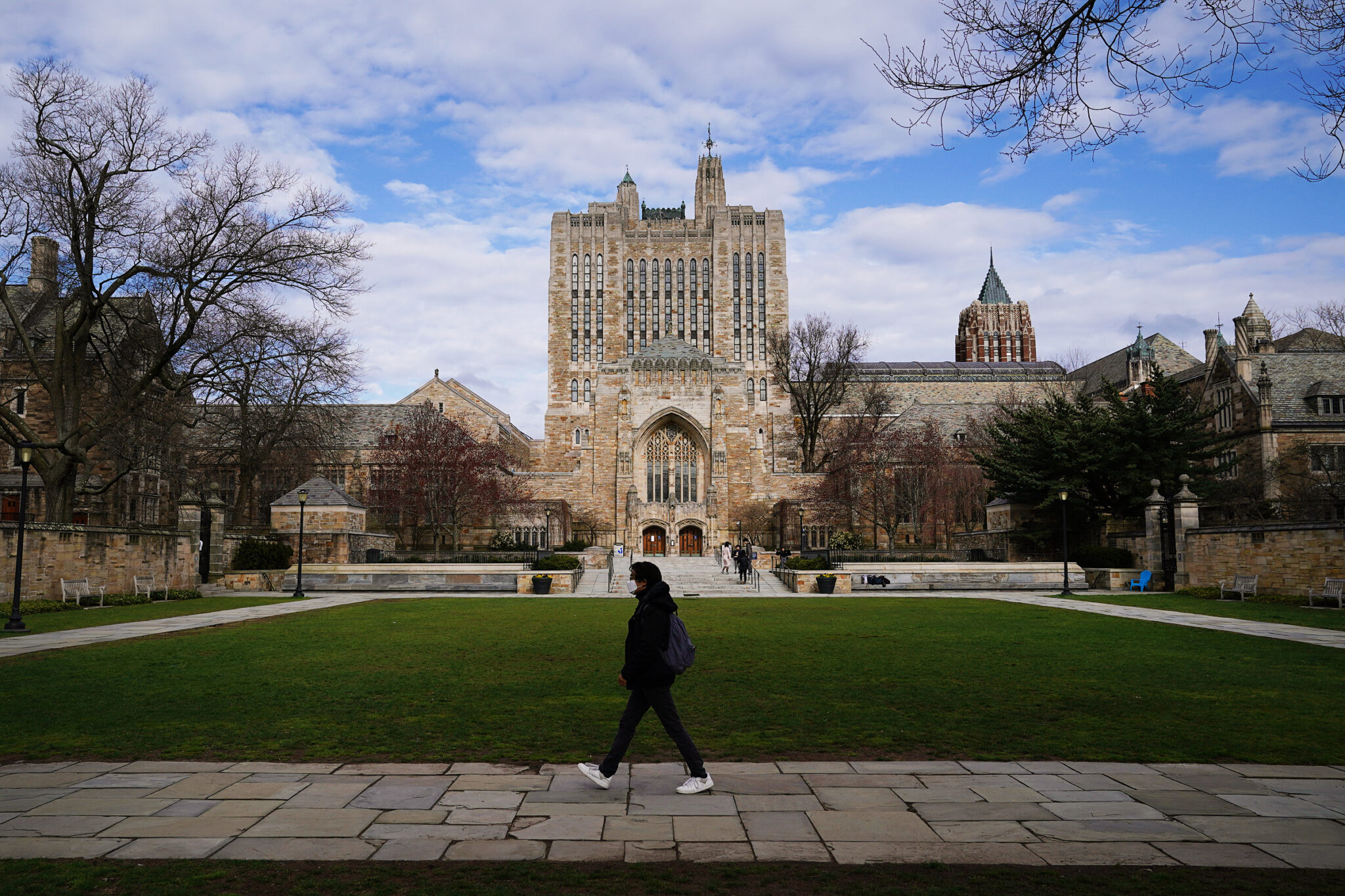Faculty pressure administrators for higher salaries
A sealed report and December meeting detail the faculty conversation over salary ranges and data transparency with the University administration.

Tim Tai, Photography Editor
During a meeting of the Faculty FAS-SEAS Senate last December, professor of economics Costas Arkolakis spoke about professor salary discrepancies between Yale and its peer institutions.
Arkolakis, who was introduced by senate chair Paul Van Tassel, spoke on behalf of the Committee on the Economic Status of the Faculty. According to the committee’s report, Arkolakis found that salaries for faculty at the University were noticeably low for those in the humanities and social sciences, but that they had generally been improving. Those in the sciences and engineering, on the other hand, received around 10 percent less compensation than comparable faculty at other such schools as of 2018.
The committee’s report, caught the attention of faculty, and the Senate has since been in communication with University administration on how to move forward. The News spoke to four professors, all of whom confirmed the conclusions shared at the December meeting.
“I join my [Senate and non-Senate] colleagues in calling for the University to compensate faculty at the level of our leading peers,” Van Tassel wrote in an email to the News.
Arkolakis told the News that data on faculty compensation generally comes from two data sets. The first is attached to the American Association of University Professors, and consists of public level data that anyone can view. However, this data cannot be further split up by subdivisions, and is therefore lacking when it comes to more complex analysis.
The second, Arkolakis said, is that which is provided by the Association of American Universities Data Exchange. It is broken down by subdivision, which facilitates a more accurate picture of individual salaries, and contains data from Yale’s major peer institutions. But the data is not easily accessible, according to Arkolakis. Administrators who can access the information might not be willing to share it, especially with the public, due to legal stipulations arising from “monopoly concerns” over salary match pressures.
Arkolakis’ committee received access to the data they needed from these files through the administration, although such information was given late and with extraction errors that had to be corrected.
The data, however, was limited from 2009 to 2018. When faculty at the meeting asked where the data for the following years was, Arkolakis said he asked the administration for the data, but that he did not receive it. In reflection, Arkolakis suggested to the News that had the committee “push[ed] a little more,” they might have received the data — but that would delay the report, already behind schedule due to the COVID-19 pandemic.
But the control over data has been frustrating to some faculty. Alessandro Gomez, a professor of mechanical engineering in the School of Engineering and Applied Science, told the News that he thinks the University could do more to share the data, especially within the Senate.
“The University has all this information and of course, I understand also the reluctance to share them,” Gomez said. “But there are ways to reveal this information without betraying any secrets.”
Gomez took it on himself to make his own inquiry into the “delicate” issue of salaries within the mechanical engineering department. Relying on the help of his Yale colleagues, he collected their salary average and compared it to those of public universities such as the University of California, Berkeley and the University of Michigan.
What was found, according to Gomez, was that Yale was doing “significantly worse” than most of these public universities.
“On top of that, we know that private universities usually pay better than public ones,” Gomez said. “And so the conclusion is that we are, at least in mechanical engineering, definitely doing significantly worse than our peers.”
Michael Fischer, a professor of computer science and FAS-SEAS senator, told the News that he thought the Gomez report was “pretty convincing” — and raised questions about how a lack of transparent data might affect the faculty culture.
Fischer explained to the News that it “damages the morale of the faculty” if they think the only way they can be paid fairly by the administration is to solicit other job options.
“In terms of maintaining an outstanding faculty, you actually want to be transparent enough to let people know they are being well-paid,” Fischer said. “And you want to be sure that that’s actually true so people are not tempted to seek outside offers.”
Van Tassel confirmed that the Senate has been in communication with the administration regarding the report, but told the News that there have been “no definitive responses as of yet.”
Neither acting FAS dean Kathryn Lofton nor former FAS dean Tamar Gendler responded to requests for comment.
The next FAS-SEAS Senate meeting is on Feb. 16.







